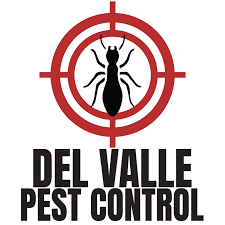Snakes, while an important part of the ecosystem, are often unwelcome guests when they invade residential or commercial properties. The thought of encountering a snake, especially a venomous one, can be enough to cause significant stress and anxiety. While many people try to deal with snake sightings themselves, hiring a professional snake exterminator is the safest and most effective way to handle the situation. In this article, we’ll explore the role of a snake exterminator, why you need one, and how they can help keep your property safe.
What is a Snake Exterminator?
A snake exterminator is a trained professional who specializes in the removal and control of snakes from properties. These experts are equipped with the knowledge, skills, and tools necessary to safely remove snakes, prevent further infestations, and ensure that your home or business remains snake-free. Unlike general pest control technicians, snake exterminators are specifically trained to identify different species of snakes, deal with venomous snakes, and apply appropriate measures to handle them safely.
Why You Should Hire a Snake Exterminator
While DIY methods may seem appealing, attempting to remove a snake on your own can be extremely dangerous. Here are some key reasons why hiring a professional is a better option:
-
Expertise in Snake Identification: Snakes vary widely in species, behavior, and venomous potential. A professional snake exterminator has the expertise to identify the type of snake present and assess the level of danger it poses. Venomous snakes like rattlesnakes or copperheads require different handling than non-venomous species. With a trained eye, an exterminator can accurately determine the species and apply the appropriate removal technique.
-
Safety First: The risk of being bitten by a snake is real, and depending on the species, a bite can lead to serious medical complications or even death. A professional snake exterminator is equipped with the right tools, such as snake tongs, gloves, and protective gear, to safely capture and relocate the snake. They also know how to handle these situations without disturbing the snake, which minimizes the risk of it becoming aggressive.
-
Proper Snake Removal and Relocation: Professional snake exterminators don’t simply kill snakes; they often relocate them to safe, natural habitats far from your property. Relocation ensures that the snake continues to play its role in the ecosystem, while also keeping your home or business safe. In cases where relocation isn’t feasible (for example, with certain venomous snakes), exterminators are trained to handle the situation in compliance with local wildlife laws.
-
Prevention of Future Infestations: Once a snake has been removed, a snake exterminator will take steps to identify why the snake came onto your property in the first place. They will inspect your home for entry points, such as gaps around doors, windows, or vents, and suggest modifications to prevent future access. Additionally, they may help eliminate food sources, such as rodents, which could be attracting snakes in the first place.
Signs You Need a Snake Exterminator
Knowing when to call a snake exterminator is essential for preventing an infestation or a dangerous encounter. Here are some signs that indicate you may need professional help:
-
Visible Snakes: The most obvious sign is seeing a snake on your property, especially inside your home. Snakes typically seek shelter in cool, dark areas, like basements or attics, but they may also be found outdoors in gardens or under porches.
-
Snake Droppings or Skin: Snakes shed their skin periodically as they grow, and if you find shed skin around your home or in your yard, it’s an indication that a snake is living nearby. Snake droppings, which resemble cylindrical pellets, can also be a sign of snake activity.
-
Signs of Rodent Infestation: Snakes are natural predators of rodents, so if your property is experiencing a rodent infestation, it could attract snakes. If you’ve noticed an increase in rats or mice around your home, you may also want to check for snakes.
-
Unexplained Noises: Snakes can sometimes be heard moving within walls or ceilings, especially if they’ve found shelter in hidden spaces. If you hear unexplained noises, especially at night, it’s a good idea to call in a professional for an inspection.
What to Expect from a Snake Exterminator
When you hire a snake exterminator, here’s what you can expect during the process:
-
Inspection: The exterminator will conduct a thorough inspection of your property, looking for signs of snake activity, potential entry points, and areas where snakes may be hiding. This includes examining areas like basements, attics, crawl spaces, and around the exterior of your home.
-
Identification: If a snake is found, the exterminator will identify the species to determine the best removal strategy. They’ll also assess whether the snake poses a danger to you or your pets.
-
Removal and Relocation: The exterminator will safely capture and relocate the snake to a suitable environment. This may involve using specialized equipment like snake tongs or hooks. If the snake is venomous or poses a serious risk, the exterminator will take appropriate measures to handle the situation.
-
Exclusion and Prevention: After removal, the exterminator will provide recommendations for preventing future snake problems, including sealing entry points, reducing food sources, and clearing any potential snake habitats like piles of rocks or wood.
Conclusion
A snake infestation in or around your property is not something to be taken lightly. Whether you’ve spotted a snake on your property or are concerned about the possibility of one, hiring a snake exterminator is the safest and most effective way to handle the situation. With their expertise, training, and proper equipment, snake exterminators can remove snakes from your property, ensure your safety, and prevent future infestations. Don’t take chances—contact a professional today to safeguard your home or business from these slithering intruders.

